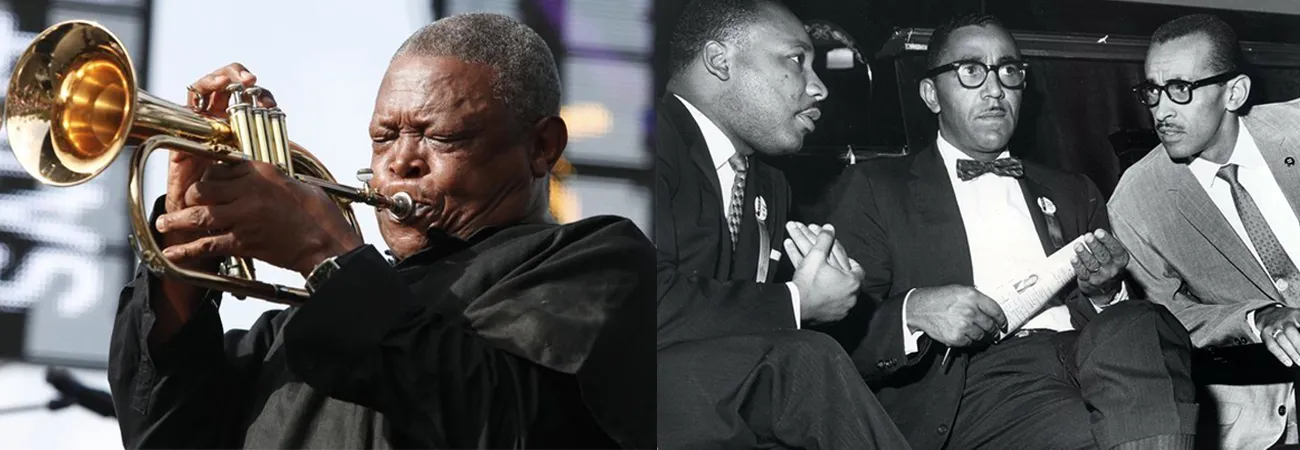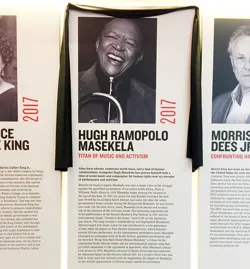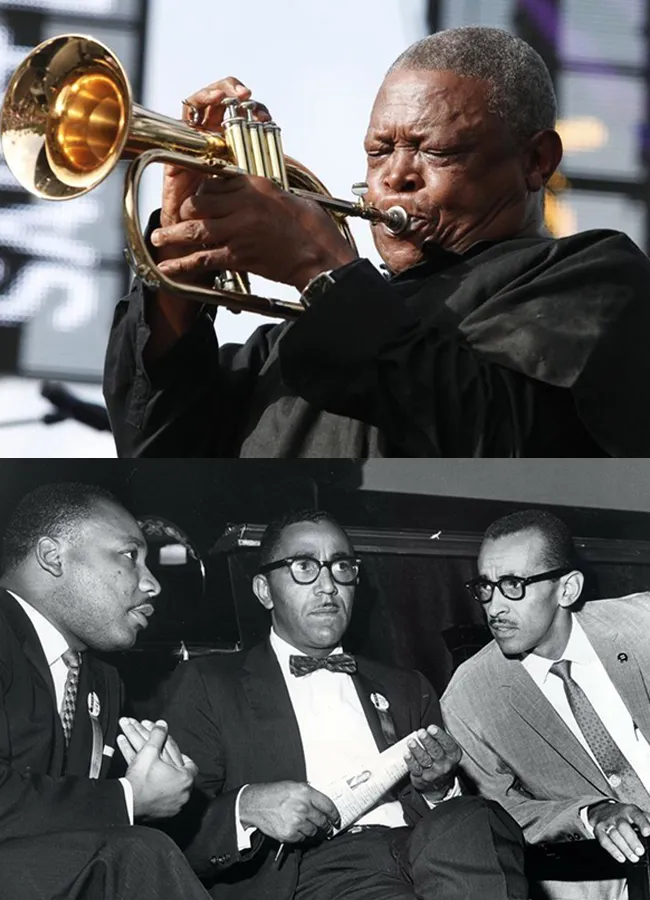
January 23, 2018 will go down in civil rights history as a sad day. Two of the icons of the 20th century civil rights movement made their transition – Ramapolo Hugh Masekela and Rev. Wyatt Tee Walker.
Hugh Masekela was a renowned South African composer. In a career spanning more than five decades, Masekela gained international recognition with his distinctive Afro-Jazz sound and hits such as “Soweto Blues”, which served as one of the soundtracks to the anti-apartheid movement. Masekela’s song “Bring Him Back Home (Nelson Mandela)”, written while he was living in exile, called for the release of the-then imprisoned Mandela and was banned by the apartheid regime. Exiled from his homeland for more than three decades, His global appeal hit new heights in 1968 when his instrumental single “Grazin’ in the Grass” went to number one in the U.S. charts.*
The National Civil Rights Museum was privileged to honor Mr. Masekela as a 2017 Freedom Award recipient. Although too ill to travel, he sent a taped message for the audience in Memphis while his son, Salema (Sal) Masekela accepted the award on his behalf.
 Rev. Wyatt Tee Walker was brought in by Rev. Martin Luther King Jr. to be the executive director of the Southern Christian Leadership Conference, three years after the civil rights organization was founded. Rev. Walker helped assemble King’s famous "Letter From Birmingham Jail" from notes the incarcerated King wrote on paper scraps and newspaper margins.**
Rev. Wyatt Tee Walker was brought in by Rev. Martin Luther King Jr. to be the executive director of the Southern Christian Leadership Conference, three years after the civil rights organization was founded. Rev. Walker helped assemble King’s famous "Letter From Birmingham Jail" from notes the incarcerated King wrote on paper scraps and newspaper margins.**
Both of these giants of the movement will be greatly missed, but their contributions to secure civil and human rights will be with us always.
– The Board and Staff of the National Civil Rights Museum
* “Father of South African jazz Hugh Masekela dies aged 78,” by Joe Brock. Rueters. January 23, 2018.
** “Civil rights leader Wyatt Tee Walker dies; worked beside MLK,” by Denise Lavoie. Associated Press News. January 23, 2018.
